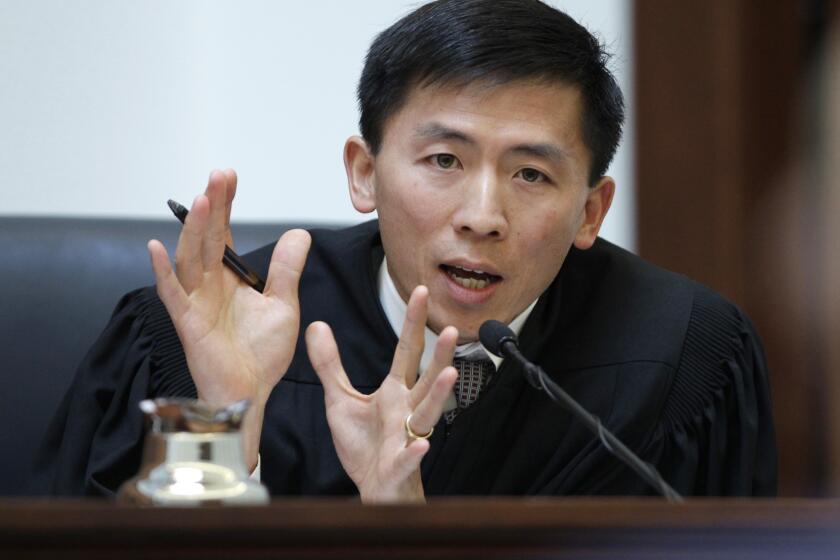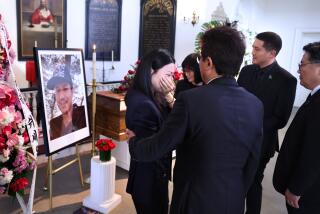California’s top court overturns death penalty for mentally ill man

- Share via
SAN FRANCISCO — The California Supreme Court on Monday overturned the death penalty for a man who was allowed to act as his own lawyer after a court-appointed expert found him too disabled to even stand trial.
In a unanimous decision, the state’s highest court overturned the capital verdict and sentence of Edward M. Wycoff, condemned for the 2006 killings of his sister Julie Rogers, 47, and brother-in-law Paul Rogers, 48, at their home in the Contra Costa County city of El Cerrito.
During the legal proceedings, Wycoff “treated the trial like an entertainment show, made numerous jokes, and admitted all the facts underlying the charges,” Justice Martin Jenkins wrote for the court.
The court upholds the vast majority of capital verdicts, overturning death sentences on occasion. But the trial court’s failure to hold a hearing on Wycoff’s mental capacity — not to mention allowing him to act as his own lawyer — clearly violated the law, the justices found.
California judges are required to hold a hearing on a defendant’s mental capacity if a judge has a reasonable doubt, based on substantial evidence, of a defendant’s competency to stand trial. The hearing would have determined if Wycoff had the ability to consult rationally with his court-appointed lawyers.
A forensic expert appointed by the court determined Wycoff lacked that ability. The expert concluded that Wycoff probably suffered from paranoid schizophrenia.
But Contra Costa County Superior Court Judge John Kennedy, who reached the bench by election, decided himself that Wycoff was competent, and a defense lawyer did not object.
Wycoff, a truck driver who lived in Sacramento County, said he killed his sister and brother-in-law because they were “evil” and failing their two children. Wycoff hoped to adopt the children after killing their parents.
At the request of Wycoff, Kennedy scheduled the sentencing on the defendant’s birthday.
“Welcome to my birthday party,” Wycoff told the court. “Is everyone having fun? Is everyone having a good time?”
Hundreds of death penalty sentences in California could be overturned, depending on how the state Supreme Court rules on arguments it heard Wednesday.
After sentencing Wycoff to death, Kennedy said in court that the defendant had “at all times” demonstrated competency to stand trial and act as his own lawyer.
Turning to Wycoff, the judge told him he believed he had “made the correct decision allowing you to represent yourself.”
“Oh, so do I,” Wycoff replied.
Early in the proceedings, Kennedy ordered a forensic examination to determine whether Wycoff had the ability to act as his own lawyer. Kennedy said he had noticed Wycoff’s “grandiosity” and paranoia.
Paul Good, the forensic expert, reported back that Wycoff had a sophisticated understanding of the criminal process but regarded his court-appointed lawyers as enemies and his paranoia made him unable to cooperate with them.
“Defendant’s bizarre behavior at trial served only to confirm and reinforce Dr. Good’s conclusions,” Jenkins wrote.
Jenkins noted that Wycoff “repeatedly insulted the jurors,” calling them lumpers, comically challenged and midgets, and expressed violent intentions toward lawyers.
The court said Wycoff, now 52, may be retried if he is found competent.
More to Read
Sign up for Essential California
The most important California stories and recommendations in your inbox every morning.
You may occasionally receive promotional content from the Los Angeles Times.












